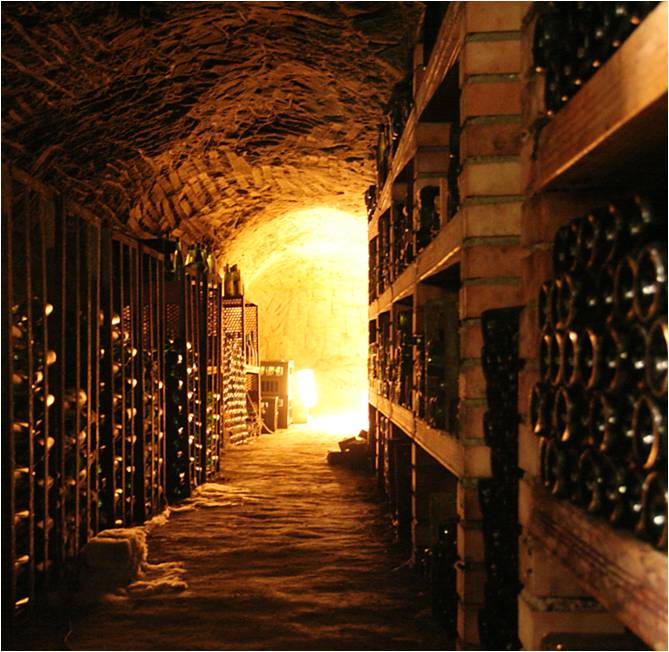While most of the commodities are consumed within 24 hours from the time of purchase, wines are often saved by the purchaser for long-term storage and aged. Wine is one of the things that get better with time when stored and aged properly, but it can also spoil and deteriorate rapidly if kept in inappropriate conditions. Proper storage and aging will enhance wine’s flavor, color and quality in general.
As an expert in wine storage, Blue Grouse Wine Cellars always considers the following critical factors when designing and installing Vancouver wine cellars.
Proper Wine Storage – Factors to Consider
Light

Light may adversely react with the chemical compounds in wine and create potential wine faults or defects, which often leads to wine having a light-struck aroma (or gouts de lumiere – French for tastes of light).
Wine maintains its clarity and citrus aroma if stored in a dark room. This is why most wines are packed in colored glass and stored in wine cellars with a minimal amount of lighting.
Humidity
Humidity is another critical element of wine storage that must be considered, especially if wine cork closures are used. The efficacy of the wine cork depends upon the humidity level. While the optimal humidity range is not yet established and varies from one wine expert to the next, the often-cited ideal humidity level is between 60 and 70 percent.
The ideal humidity range will keep the cork expanded and in shape, providing a good seal to the wine bottle. When wine is stored lower than the ideal humidity level, cork will dry out, shrink or crack, allowing oxygen to enter the bottle and come in contact with the wine. Oxidation then occurs resulting in degradation of wine.
Additionally, when wine is subjected to a higher humidity level, mold may occur and while this will not affect the wine itself, the bottle and wine label will deteriorate.This provides yet another reason that storing your wines in a standard kitchen refrigerator is not advisable, since it is not designed to maintain the right humidity levels.
